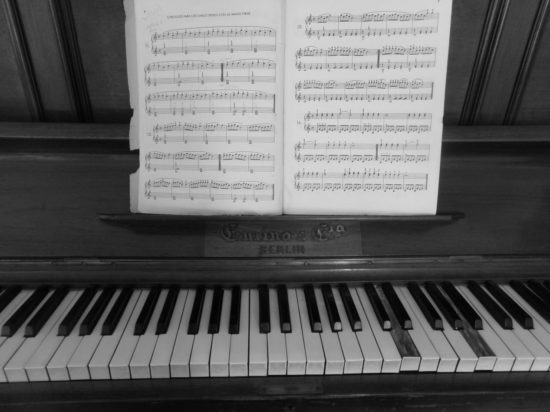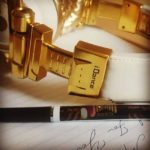Aspiring musicians will attest that notating your music can be one of the hardest and most important steps in making your work more professional. It allows you to convey the songs in your head to paper, and from paper to others. To do so, you may want to use chord charts, lead sheets, or record even a rough draft of the song to help you with notating your music later.
Remember From Chords
Notating music takes a long time, and the time it takes carefully writing your notes can mean you run the risk of forgetting critical sections. A chord chart is a way to write down the chords and lyrics, so others know how to match the lyrics with the notes you want to hear. Chord charts don’t convey pacing or pitch though, so you should walk your audience through it later.
Leading Isn’t Cheating
Lead sheets are another way to help you notate your music quickly. By putting the notes over the staff, you can write down the important parts of your music faster. If you’re in a time crunch or not great at writing your music onto a staff, this can help you get your notations down more quickly. It’s perfectly acceptable to spend time notating it properly later when you’re much more familiar with your new melody.
Allowing others to work off a lead sheet for your music can slow down their ability to learn to read the music. They’ll be slower to notice and adapt to changes as well, so it may be best to keep a lead sheet to yourself. If you want to convey your notations to others later, consider converting your lead sheet into a proper staff, and practice reading it without the lead sheet yourself later.
Spread The Work Out
The best way to avoid forgetting essential notations, however, is to record it. You may not have your music thoroughly worked out yet, but recording even a rough draft to play back to yourself can help you when making notations later. Any important notes won’t be forgotten over time this way. It doesn’t require a full accompaniment of instruments; just make sure you convey the high points.
This method is especially helpful if you feel confident you’ve replicated the melody properly. Many devices and software today will convert music it detects into notated compositions. Even MP3s and iPods are capable of automatic notation to some degree. It isn’t perfect but will help you make progress on your written music before you ever touch a pen or keyboard. Help break apart sections for specific instruments or musicians, and you’ll have made significant progress.
Preserve And Share
Notating music allows us to give our work to others, both in the present and future. For a musician just getting used to the practice it can be frustrating to lose an important melody or creation in your head, so writing it down quickly is essential. Lead sheets, rough recording and chord charts are all cheap ways to help you notate your music quickly, and spend more time perfecting the songs that you want to convey.
Getting your music down on paper so you can create it again later is essential. Put in the time and the benefits will pay off handsomely.
-written by Sally Writes










